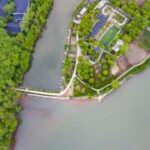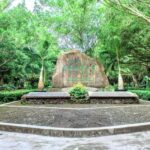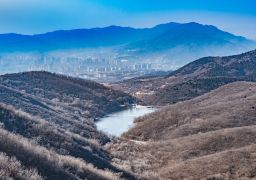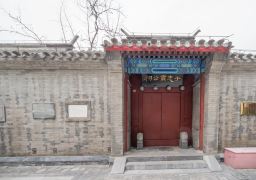Xijin Mountain, located at the end of the Tianmu Mountain range, boasts lush vegetation and well-preserved ecology, with a vegetation coverage rate of 98%.
The subtropical forest area preserves numerous ancient and famous trees, such as Silverleaf Willow, Leopard Bark Camphor, Toon, Sweetgum, Fragrant Maple, Purple Phoebe, and Photinia, among which the precious Silverleaf Willow and Shuanglin Purple Phoebe are millennia-old trees that can only be found in Xijin Mountain. The forested areas of Xijin Mountain, with their extensive pine, fir, bamboo, and broadleaf forests, as well as many ancient trees, form a fragrant botanical landscape throughout the seasons. The water features of Xijin Mountain are diverse and captivating, with the hundred-meter waterfall being particularly impressive, and a lake at the mountaintop that is considered extraordinary. As Xijin Mountain is the final branch of the Tianmu Mountains in Western Zhejiang, it becomes a convergence point for numerous water sources. There are five lakes of various sizes at the summit and base of the mountain, along with dozens of ponds, pools, and waterfalls, too many to list. The Xijin Three Lakes, represented by Shuanglin Lake, Biyun Lake, and Qin Lake, are naturally formed with water that remains emerald green like jade all year round. The most admired is the Xie Yuyan Waterfall (ancient people called it ‘Jade Pouring from the Galaxy’), with a drop of over 100 meters, resembling jade cascading down with a grand momentum, and has been a site for viewing waterfalls since ancient times, with many poets composing works about it. Shuanglin Temple, located in a small basin in the mountains, was originally built during the Tiancheng years of the Later Tang Dynasty (926-930), initially named Baolin Temple, and renamed Shuanglin Temple during the Zhiping years of the Northern Song Dynasty (1064-1067) by Emperor Yingzong. Shuanglin Temple has experienced the vicissitudes of rise and fall, and although its main hall has collapsed, the overall layout of the temple base, steps, stone piers of the palaces, ancient lions, and pagoda forests remains clear and intact, with a rich collection of surface cultural relics. Opening hours are from 07:30 to 17:00 all year round. Preferential policies: 1. Free entry for children under 1.2 meters in height (not including 1.2 meters). 2. Half price for children between 1.2 meters (including) and 1.5 meters (including) in height; half price for senior citizens over 70 years old (not including 70) with valid identification. 3. The above information is for reference only, and the specific details are subject to the disclosure of the Hangzhou Xijin Mountain Scenic Area on the day.Xijin Mountain: A Verdant Paradise of Ancient Trees and Waterfalls
Xijin Mountain, located at the end of the Tianmu Mountain range, boasts lush vegetation and well-pre[...]









